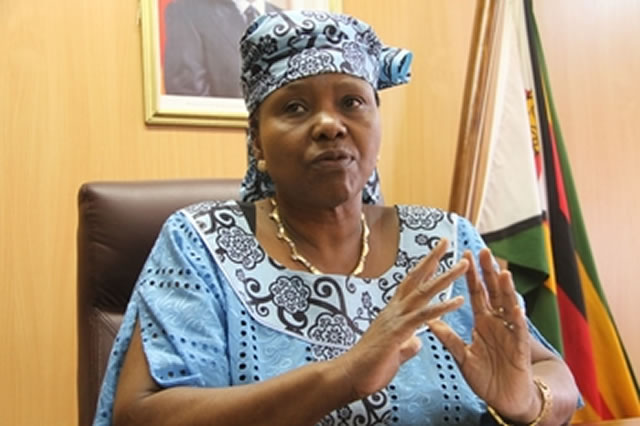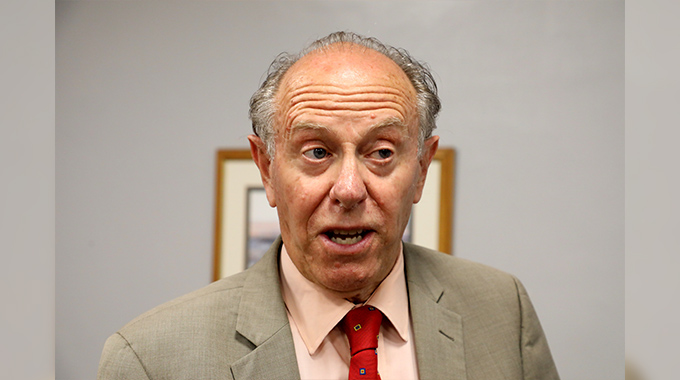The case of child custody after divorce

Vaidah Mashangwa
DUE to the overwhelming response to the last column on Who gets what after divorce, there is need to highlight one important issue of child custody. According to the book, Cultural Studies, marriage has been labelled by feminists as a patriarchal and untrustworthy institution which oppresses women and privileges men — domestic violence and abuse being cited as one of the deficiency of the institution. Apart from that, marital rape and other forms of coercive sex in marriage renders its existence as a social modality that is slowly outliving its importance.
As if this is not enough, many couples are engaging in extra-marital affairs with 60-70 percent of married men and 55-60 percent of married women having sex with a person other than their spouse during the course of their current long term marriage. The workplace also has become a dangerous place for married people due to its double code of sex/power as some women fall victim to sexual advances by colleagues and bosses. Some authors have described the workplace as a central sexual site and most cases go unreported for fear of victimisation and lack of promotion related matters.
Due to a host of these and other related issues surrounding marriages, the possibility of divorce is inevitable in most instances. However, it is important to note that when parents divorce, the children are affected more by the family’s dissolution.
There is a positive correlation between the effect of the divorce and the age of the child. An older child might get consolation from her or his peers whose parents also divorced but for a pre-school child, some friends might even ask why his or her mother is absent on school events and this might affect her or him. The children are also affected by the sudden use of fewer resources and serious changes in diet, type of school and holiday trips and so on.
At times children are caught in between parents during divorce. Parents ought to be open enough about their intentions especially to older children who can manage this family transition. Parents should talk sensitively, openly and sensibly during this period so that children get an appreciation of what is happening and in that case they easily adjust to the divorce.
For the custodian of a child, if the marriage is under Chapter 5: 11, it is the High Court which decides the issue of child custody after divorce. The court can give custody to the father if he can persuade the court that the children will be safer or better off with him than with the mother. The court may also give joint custody where both parents share custody of the children.
For a registered customary marriage the couple goes to the Magistrate Court. Usually the mother gets custody of the children. If the couple disagrees, the court decides who should get custody of the children. This can be done simultaneously at the time of divorce.
The courts have ruled that best interest of a child include child’s age, health, sex, educational and religious needs, social and financial position of the parents, character of the parents, temperament and past behaviour of the parents of the child.
For a parent who ill-treats or has neglected the child in the past or has a history of drug abuse, such a parent cannot be given custody of a child. For a parent too who shares a room with children and brings home with several sexual partners he or she cannot be given custody of the children.
In a civil marriage Chapter 5:11, if the husband and wife are on separation, the mother of the child will have sole custody of the child or children. The courts can also give custody to the husband if it is to the best interest of the children.
If the father takes away the child or denies the mother custody or if the father wants to apply for the custody either the father or mother goes to the Children’s Court which is part of the Magistrate Court. Most fathers generally do not contest such decisions and at most nine times out of ten the physical custodian is the mother.
If one parent is given custody of the children, the other parent is entitled to have access to the children. The other parent can see the child on specified times set by the court. This ensures continued relationship between both parents of the children. The other parent can have access to the child during school holidays, weekends or public holidays. If the other parent is paying maintenance this does not stop him or her from doing so during this period that she or he has access to the child or children.
Some parents might decide on their own to take children away from the custodian parent and cross borders to neighbouring countries without the authority of the other party. This is illegal and is known as child abduction. Such cases should be reported to the relevant court. To avoid disputes after death it is important for individuals to write Wills and it is important to write a responsible Will.
Changes in the family were predicted by some researchers way back in the forties and individualism seemed to be more acceptable. Today many researchers continue to point out as evidence the increase in divorce, out-of-wedlock births, cohabitation and single parenthood.
Even after divorce, it is important despite the numerous challenges to keep a cordial relationship with one’s ex for the sake of the children. Children whose parents continue to cooperate after a divorce feel secure, benefit from the consistency, can solve problems and have a healthy example to carry them into the future. Co-parenting is not about anger and frustration but about the children’s feeling, happiness and stability.
However, parents should never use children as “go betweens” as this makes them vulnerable and encourages them to be part of the parents’ conflict. So call or email our ex yourself. Apart from that, parents should avoid saying negative comments about the other ex. The children should have the right to a good relationship with the other parent that is free from influence. Discussions should be conversed with dignity and a high sense of responsibility, respect and neutrality.
Both parties should learn to make requests not demands for example, (are you willing to . . .?) or (can we try to . . .?) and they should not overreact. At times the other ex might have remarried, ensure that before the child goes for the weekend one packs his or her bag depending on the age and remind the child to anticipate changes and always drop or pick up the child. If the child refuses to go find the cause and talk to the child and the ex as well.
Vaidah Mashangwa is the Provincial Development Officer, Ministry of Women Affairs, Gender and Community Development. She can be contacted on 0772 111 592 or email: [email protected].









Comments